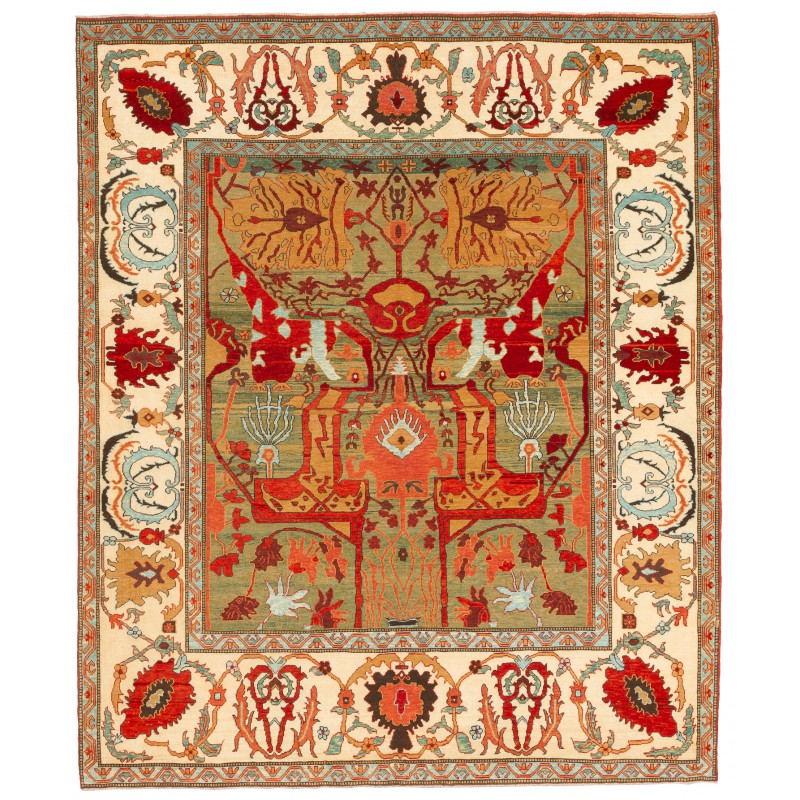
- Stock: 売り切れ
- Model: C40178
- サイズ: 188cm x 227cm
この絨毯の源泉は、イスラムの絨毯という書籍、Joseph V. McMullan, Near Eastern Art Research Center Inc., New York 1965 nr.22に由来します。これはゲロス(ガルスまたはガルス)地域、東クルディスタン地域で作られた19世紀のアラベスクデザインの絨毯のシステムです。この絨毯は、シャー・アッバース大帝の時代に完璧に仕上げられたアラベスクと花瓶の絨毯の素晴らしい響きです。唯一欠けている要素は花瓶自体です。アラベスクの力強いシステムは、さまざまな見事に描かれたパルメットで多くの場所で繋がれています。パルメット以外は、半自然主義的な花と灌木のフィールドパターンが一方向に成長していることが特徴です。これはもちろん初期の花瓶の絨毯の特徴です。18世紀末までになされたという点で、17世紀のアラベスクパターンの偉大な伝統に完全に立っているこのような絨毯を見つけることは驚きです。しかし、Dr. Popeの言葉を引用すると、「この絨毯はその年代を超えて重要です」。このクルド族首長は、おそらく相続または贈り物により、シャー・アッバースのアラベスクタイプのオリジナルの絨毯を所有しており、同様に優れたデザインの絨毯を試みたと考えられます。他の類似のフィールドの例はメトロポリタン美術館で展示されています。絨毯のデザインは、私たちのデザイナーによって解釈され、柔らかい色合いがこの絨毯に選ばれています。
The source of the rug comes from the book Islamic Carpets, Joseph V. McMullan, Near Eastern Art Research Center Inc., New York 1965 nr.22. This is a system of arabesque-designed 19th-century rugs from Gerous ( Garrus or Garus ) region, Eastern Kurdistan area. This rug is a splendid echo of the Arabesque and Vase Carpets brought to perfection during the time of Shah Abbas the Great. The only element missing is the vase itself. A powerful system of arabesques is the framework, connected in many places by a variety of superbly drawn palmettes, crisp and clean in every outline. Except for the palmettes, the semi-naturalistic flowers and shrubbery of the field pattern all grow in one direction, which of course is characteristic of the early Vase Carpets. It is surprising to find such a rug, standing fully in the great tradition of 17th-century arabesque patterns, woven as late as the end of the 18th century. However, to quote Dr. Pope, “This carpet is important far beyond its years.” It should be noted that in all probability this Kurdish chieftain had through inheritance or gift, an original carpet of the Shah Abbas arabesque type and chose to attempt a wearing of an equally superior design. The other similar field example is exhibited at The Metropolitan Museum of Art (MET Museum). Our designers choose soft colors for this rug.
